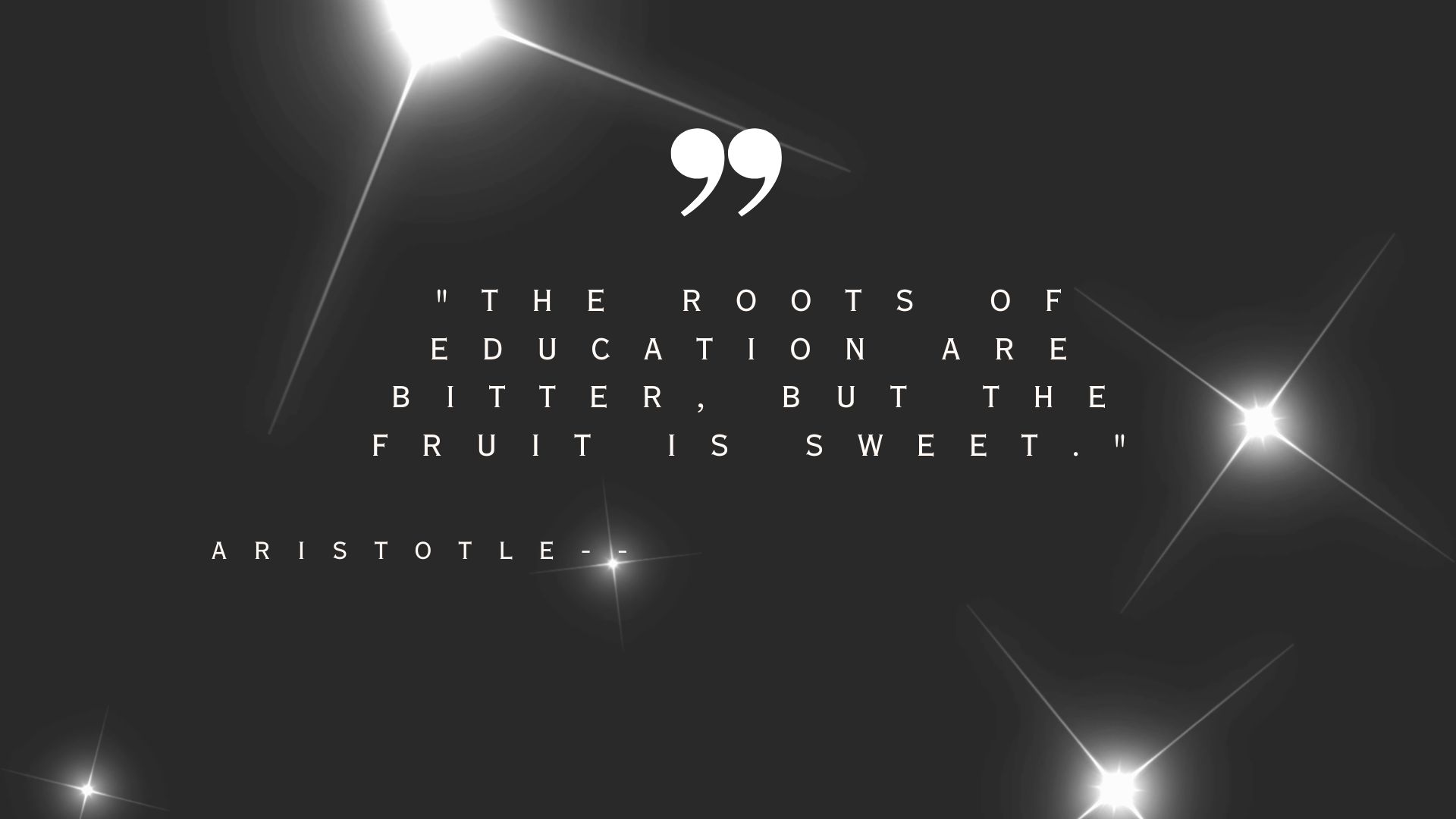“The roots of education are bitter, but the fruit is sweet.”
— Aristotle
The quote “The roots of education are bitter, but the fruit is sweet” is attributed to the ancient Greek philosopher, Aristotle. This thought-provoking statement delves into the transformative journey of education, highlighting the initial challenges and sacrifices one must endure to attain knowledge and wisdom. In this explanation, we explore the profound meaning behind this quote, breaking it down into subheadings for a comprehensive understanding.
- The Bitter Roots of Education: Education, at its onset, demands dedication, hard work, and perseverance. Learning new concepts can be daunting and frustrating. It often requires hours of concentration, study, and problem-solving, which can feel burdensome. Additionally, the process of acquiring knowledge may involve facing failure and setbacks, which can be disheartening. These bitter roots represent the struggles and sacrifices one must make on the path to gaining insight and understanding.
- Embracing Challenges: Aristotle’s quote encourages us to embrace the challenges that come with education. It reminds us that grappling with difficulties and overcoming obstacles are integral parts of the learning journey. Just as a plant’s roots anchor it to the ground and provide the nourishment it needs to grow, the initial challenges in education lay the foundation for future growth and success.
- Cultivating Patience and Perseverance: Learning is not a one-time event but a continuous process that requires patience and perseverance. This quote reminds us that we may not see immediate results or rewards for our efforts, but with time and dedication, the fruits of our labor will manifest. The willingness to stay committed despite setbacks is key to reaping the sweet rewards of education.
- Transformation and Growth: Education has the power to transform individuals. As knowledge is acquired and skills are honed, personal growth and development occur. Aristotle’s quote emphasizes that this transformation is not instantaneous; rather, it is a gradual process that starts from the roots and eventually yields the sweet fruits of wisdom and understanding.
- The Sweet Fruits of Wisdom: After enduring the bitter roots of education, the rewards become evident. Knowledge and wisdom bring empowerment, enlightenment, and the ability to make informed decisions. Education enriches our lives, expands our perspectives, and opens doors to new opportunities and experiences. The sweet fruits of education are the realization of one’s potential and the capacity to contribute meaningfully to society.
Conclusion:
Aristotle’s timeless quote, “The roots of education are bitter, but the fruit is sweet,” underscores the transformative power of education and the value of perseverance in the face of challenges. By recognizing the initial difficulties as necessary stepping stones towards growth and wisdom, we can fully appreciate the sweet fruits that come from embracing lifelong learning. Education, indeed, remains a powerful force that shapes individuals and societies, leaving a lasting legacy for generations to come.




